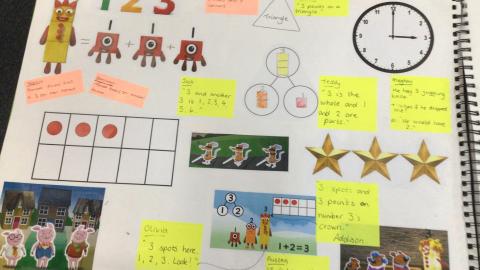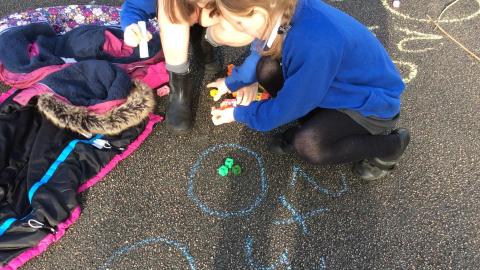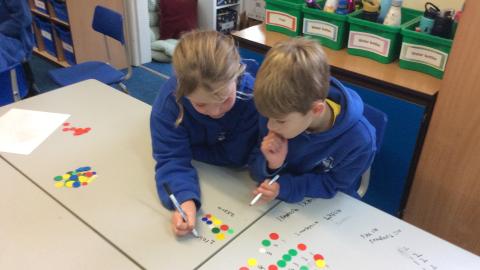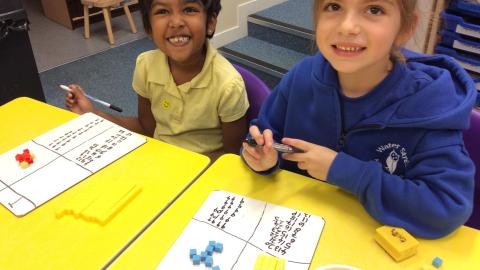“ I hear and I forget, I see and I remember, I do and I understand”
-Confucius
Here at Water Street we want to teach maths in a way that will enthuse, engage and motivate all children to learn, and that their curiosity and enthusiasm for learning will be nurtured.
Our vision for the teaching of maths is to develop secure building blocks for the development of mathematical understanding, both now and in the future.
Children learn maths through developing the underlying skills of: Fluency, Reasoning Mathematically and Problem Solving.
Fluency- children become fluent in the fundamentals of mathematics, including through varied and frequent practice with increasingly complex problems over time, so that pupils develop conceptual understanding and the ability to recall and apply knowledge rapidly and accurately.
Reason mathematically- by following a line of enquiry, thinking about relationships and generalisations, and developing an argument, justification or proof using mathematical language- answering questions- “Tell me why?”, “ How do you know?”
Problem Solve- Problem solving is about engaging with real problems, problems within maths itself- including guessing, discovering, and making sense of mathematics.( Polya- 1945)
Effective learning in maths allows and encourages children to follow a learning journey. Pupils initially use concrete examples to aid their learning. Concrete learning experiences should be built on by using pictorial representations, before moving onto more abstract concepts.
The teaching of maths should aim to support and nurture a range of learning styles including Visual, Auditory and Kinaesthetic approaches. Teachers vary the way in which lessons are delivered and resources are used in order to keep lessons engaging and interesting.
Resources used by teachers will include practical resources suitable for the given year group, textbook and worksheets, teachers’ personal resources and ideas, as well as practical activities, digital resources and games.
We do not specify a particular structure to any given lesson although good teaching practice is likely to develop: an opener to “hook” the children into their maths learning, an element of taught exposition, opportunity for paired work as well as independent learning , ongoing plenaries which recap and extend learning, practical experiences and opportunities for consolidation and revisiting.
Our teaching reflects our inclusive ethos, with high expectations of all children to achieve their full potential.





